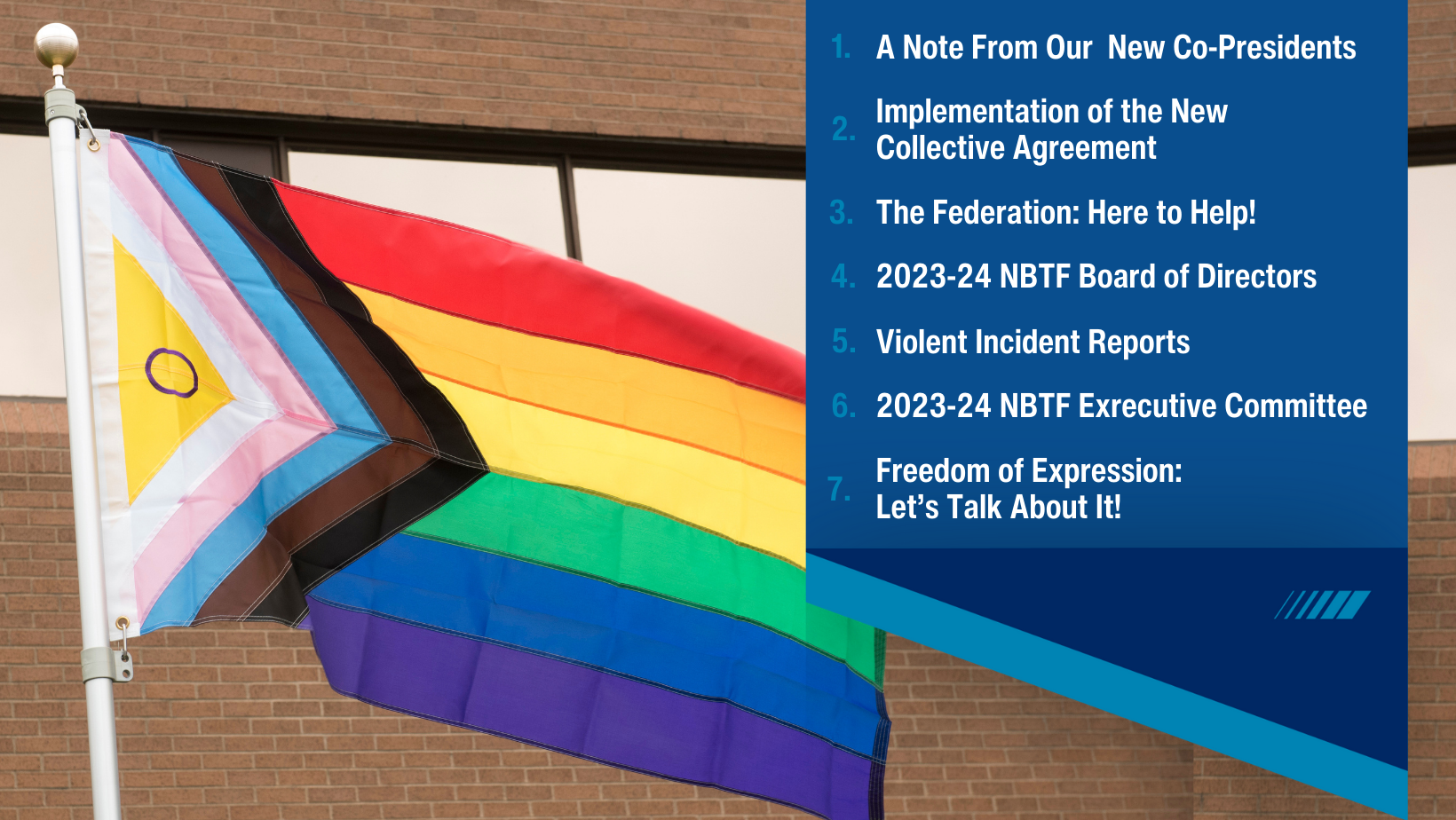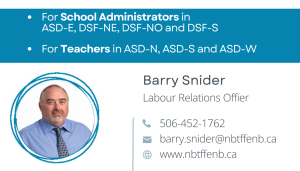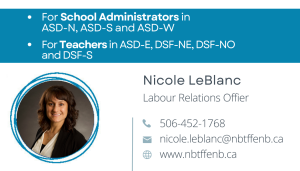| A Note From Our New Co-Presidents |

Peter Lagacy & Stéphanie Babineau Dear Members: As we begin our 4th month as your NBTF Co-Presidents, we are humbled by the privilege we have been granted to be your voice. Every day, we work with different stakeholders and rights holders to bring meaningful and positive changes for all New Brunswick teachers. |
| Implementation of The New Collective Agreement |
|
We wish to remind members that the Employer has 60 days from the signing of the collective agreement to implement its new components, which means all changes need to be in effect by November 27, 2023. |
| The Federation: We Are Here to Help! |
|
Every day, the NBTF staff offers sound advice to members who have questions about their working conditions or benefits. If you would like to speak directly with a staff member, see the information below to help you determine the best person to contact. All calls and emails are confidential. For general inquiries, please contact the NBTF at nbtf-fenb@nbtffenb.ca or 1 888 679-7044. |

|
| 2023-2024 NBTF Board of Directors |

|
 |
|
In order to ensure that our data reflects the current reality in schools, the NBTF continues to gather information on all violent incidents that teachers are facing on a daily basis. Therefore, all teachers are asked to take a few minutes to fill out our Violent Incident Report each time they are confronted with such an incident. This information is confidential and is for the exclusive use of the NBTF. It is important to note that this information is not shared with the district unless so requested by the teacher through the Violent Incident Form. Examples of incidents include:
If you have any questions on this topic, please contact the NBTF Labour Relations Officer assigned to your District at 1-888-679-7044.
|
| 2023-2024 NBTF Executive Committee |
|
|
|
Freedom of expression is a fundamental right and Teachers should expect to be able to freely express their opinions on matters within their professional expertise. It is recognized that teachers are professionals and their opinions on pedagogical and educational issues are valued. It is important to understand, however, that it does have its limits. The courts have established that the Employer has a right to expect fairness, integrity and loyalty from its employees. It therefore follows that teachers may publicly express their opinions in accordance with the following guidelines without fear of reprimand or discipline from the Employer:
Before contemplating any action or for more information on this matter, we would advise that you contact the NBTF. |













 Teachers are free to publicly express their opinions on pedagogical issues and general classroom management. These opinions must be based on facts and expressed in a constructive and objective manner.
Teachers are free to publicly express their opinions on pedagogical issues and general classroom management. These opinions must be based on facts and expressed in a constructive and objective manner.